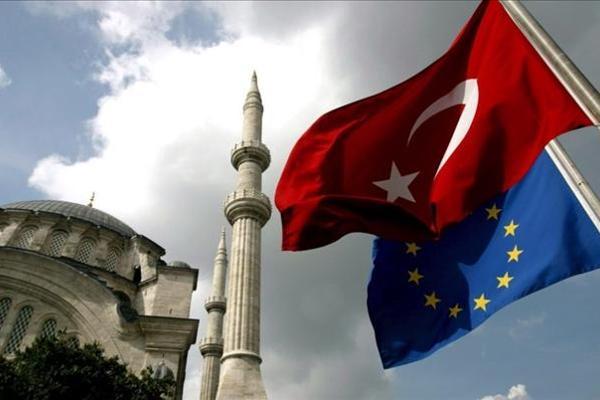EU officials to hold talks on visa-free travel for Turkish citizens
ANKARA


A delegation from the European Union will hold meetings in Ankara on May 31 and June 1 for discussions on visa-free travel in the Schengen area for Turkish citizens.
The delegation, headed by Simon Mordue, the deputy director general at the European Commission’s home affairs department, will have meetings at the foreign, interior and justice ministries, and the talks will focus on the position paper Turkey submitted to Brussels to launch the visa liberalization talks.
“I think we are coming to an end” in the visa liberalization issue, Foreign Minister Mevlüt Çavuşoğlu told a group of journalists en route from Germany to Turkey.
The EU has been picky examining proposals made by Ankara on the remaining seven benchmarks, Çavuşoğlu said.
Frans Timmermans, the first vice-president of the European Commission, will pay a visit to Turkey after the EU delegation, he noted.
The EU stalled off Georgia for visa free travel and it’s always possible they could do the same with others, the minister said in reply to a question on what Turkey would do if Brussels delayed the process.
The minister reiterated that Turkey should not show weakness on its anti-terror law, elaborating on the EU’s demand for change in Turkish legislation regarding terrorism and terrorist offences. He said the EU was previously positive on a cooperation platform with the European Council on the matter of anti-terror legislations, but changed its mind later.
Ankara delivered its position paper to European Commission Vice President Frans Timmermans on Feb. 7.
According to the European Commission, to get the visa waiver Ankara needs to fulfill seven outstanding criteria out of a total of 72, including “revising legislation and practices on terrorism in line with European standards.”
The most challenging benchmark for Turkey is the change in the law on counter-terrorism.
A migration deal between Turkey and the EU in 2016 consisted of visa-free travel for Turkish nationals within the Schengen area. But the visa-free deal had not been implemented due to Turkey’s anti-terror law, which is among the EU’s benchmarks.
So far, Turkey has rejected making changes to its anti-terror law, stating that it is under attack by the Fethullahist Terror Organization (FETÖ), the outlawed Kurdistan Workers’ Party (PKK) and the Islamic State of Iraq and the Levant (ISIL).
